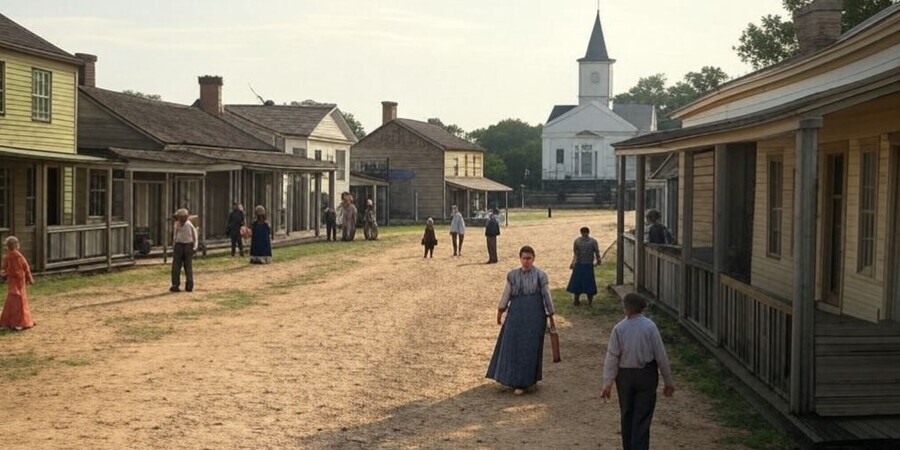MISSISSIPPI STATE - Mississippi, a state steeped in Southern history and culture, boasts a city that predates its statehood by over a century: Natchez. Perched high on the bluffs overlooking the Mississippi River, Natchez holds the distinction of being Mississippi's oldest city, a testament to its strategic location and role in the early exploration and settlement of the lower Mississippi Valley. Founded in 1716 by French colonists, Natchez's story is a captivating blend of Native American heritage, colonial ambition, antebellum grandeur, and enduring resilience.
Natchez: Unveiling the History of Mississippi's Oldest City - A Jewel on the Bluffs
This article explores the founding and evolution of Natchez, highlighting its historical significance and unique charm.
French Foundations: Fort Rosalie and Early Settlement (1716)
Natchez's origins lie in the French colonization of the lower Mississippi River Valley. In 1716, French colonists established Fort Rosalie on the bluffs of the Mississippi River, marking the beginning of permanent European settlement in the area that would become Natchez (Source: Historic Natchez Foundation, historical accounts of French Louisiana). This fort was intended to secure French control over the river and facilitate trade with the Natchez, the indigenous people who inhabited the region.
A Strategic Location: Crossroads of Cultures and Commerce
Natchez's location on the Mississippi River proved to be strategically vital. It became a central trading post and a center of agricultural production, mainly cotton, during the colonial and antebellum periods (Source: Histories of Natchez and the Mississippi River Valley). The city's position on the river made it a crossroads of cultures, with French, Spanish, British, and American influences shaping its development. Native Americans initially inhabited the area. During the 1700s, the region was colonized and traded between French, Spanish, British, and American forces.
Antebellum Grandeur: Natchez's Golden Age
The 19th century, particularly before the Civil War (the antebellum era), was a time of great prosperity for Natchez. The city became a center of wealth and opulence, fueled by the cotton trade and the plantation economy. Wealthy planters built grand mansions that showcased the era's architectural styles, many of which still stand today, contributing to Natchez's unique character (Source: National Park Service, Natchez National Historical Park).
A City of Contrasts: Wealth, Slavery, and Resilience
It's crucial to acknowledge that Natchez's antebellum prosperity was built on the institution of slavery. The city was a major center of the slave trade, and its wealth was directly tied to the forced labor of enslaved African Americans. This painful legacy is an integral part of Natchez's history. It is increasingly being addressed and interpreted at historic sites and museums (Source: Historical accounts of slavery in Natchez, museums and historical sites in Natchez).
Preserving the Past: Natchez Today
Modern-day Natchez is a city that embraces its complex history. The Natchez National Historical Park, administered by the National Park Service, preserves several key sites, including Melrose, the William Johnson House, and the Forks of the Road (a former slave market).
- The Natchez Pilgrimage: This annual event offers tours of restored antebellum homes, providing a glimpse into the lives of Natchez's wealthy planters. Some of these homes are open to the public year-round.
- Historic District: Natchez's Historic District is a treasure trove of architectural gems, with many original facades preserved, showcasing the city's rich architectural heritage. The town is walkable.
- Museums and Cultural Institutions: Natchez offers a variety of museums and cultural institutions that explore different aspects of the city's history, from its Native American roots to its antebellum era and beyond.
- Grand Village of the Natchez Indians: a historical park.
- It was the political center of the Mississippi Territory in 1798.

Share This Article on Social Media
Sources:
- Historic Natchez Foundation
- National Park Service (Natchez National Historical Park)
- Historical accounts of French Louisiana
- Histories of Natchez and the Mississippi River Valley
- Museums and historical sites in Natchez
- The City of Natchez's website
- Grand Village of the Natchez Indians


